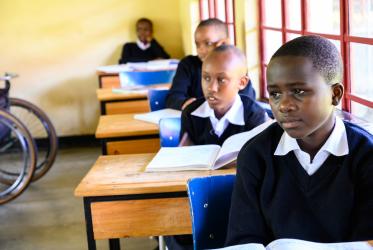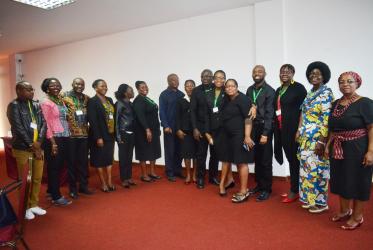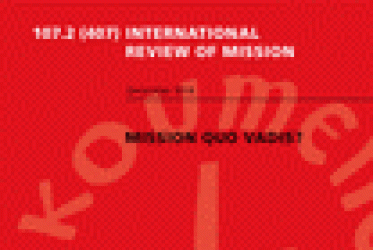Displaying 1 - 16 of 16
Churches in southern Africa stand against violence, xenophobia
10 October 2019
Mission and people with disabilities
26 June 2019
Thursdays in Black flourishes in Liberia
07 February 2019
New issue: International Review of Mission
14 December 2018
When you have nothing, you give your heart
09 May 2018
Konrad Raiser shares ecumenical journey of transformation
06 February 2018
A safe space for sinners to change and for pain to be shared
03 August 2017
Christian and Muslim promote spiritual solidarity
14 June 2017
The work of the Spirit and discipleship in Christian mission
12 January 2017










